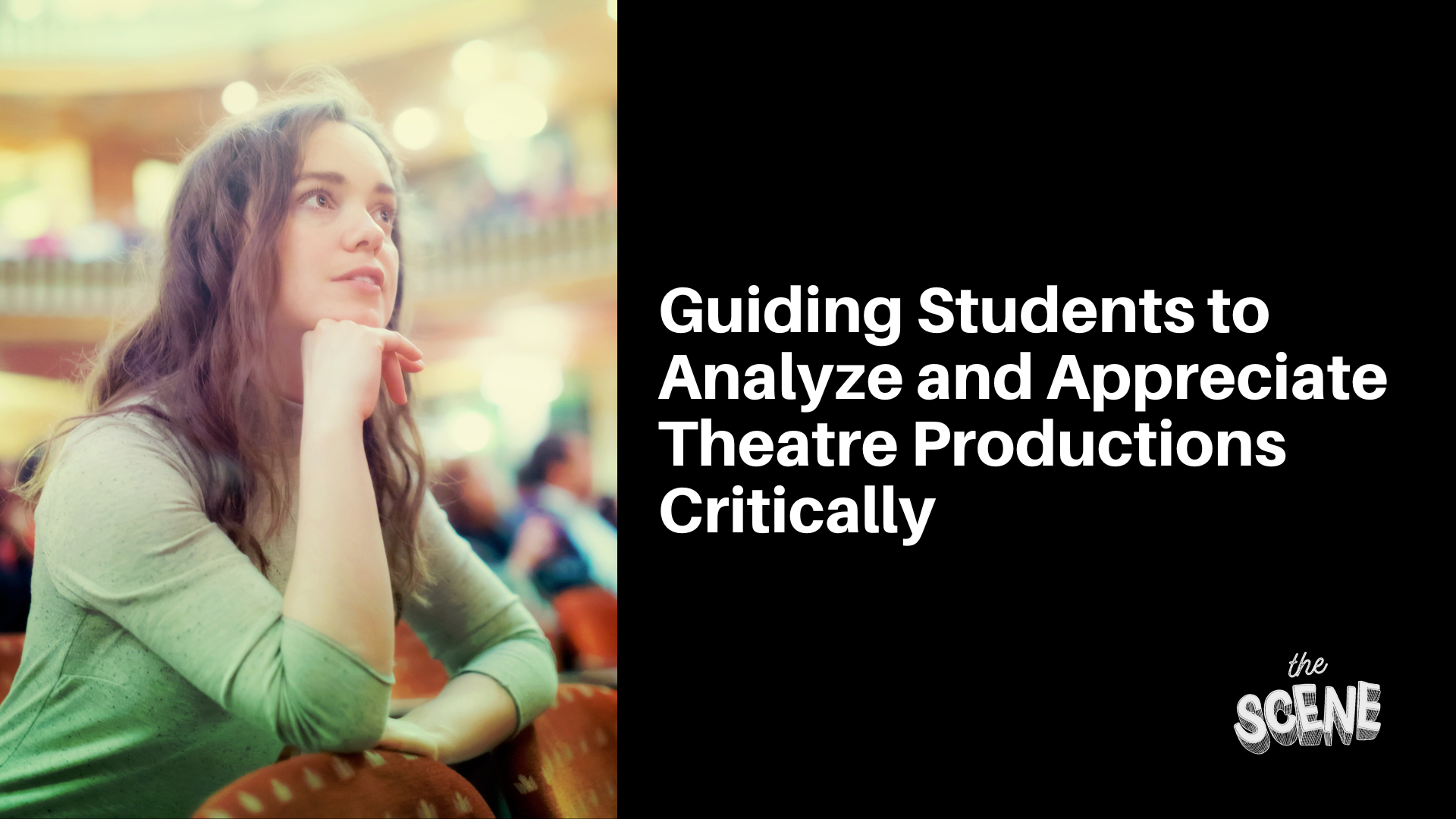by Zach Dulli, The Scene
In the world of educational theatre, guiding students to analyze and appreciate theatre productions critically is not just about fostering future critics; it’s about nurturing well-rounded individuals who can engage with art on a deeper level. Today, we delve into the art of teaching students to dissect and appreciate the intricate tapestry of elements that make up a theatre production, including acting, direction, and technical aspects. Educators can help students unlock a richer, more profound understanding of the theatre by cultivating an environment where critical analysis is paired with genuine appreciation.
The Framework for Analysis:
- Understanding the Narrative: Start by encouraging students to grasp the production’s narrative structure and thematic depth. Encourage them to look beyond the surface story and explore underlying themes, historical contexts, and the playwright’s intentions. This foundational step is crucial for students to appreciate the complexity and nuances of the production.
- Evaluating Acting Performances: Acting is the most visible element to the audience and often the most critiqued. Teach students to assess actors’ ability to convey emotions, their consistency in character, and how effectively they interact with one another. Encourage discussions about whether the actors bring depth and nuance to their roles and how their performances contribute to the production’s overall impact.
- Direction: The Invisible Hand: The director’s vision is pivotal in bringing the script to life. Students should learn to identify the director’s influence on pacing, staging, and the overall aesthetic of the production. Discuss the director’s choices in casting, blocking, and ability to harness their team’s strengths to tell the story effectively.
- The Magic of Technical Elements: Theatre is a sensory experience, and technical elements like lighting, sound, set design, and costumes play a significant role in shaping the audience’s experience. Teach students to observe how these elements enhance or detract from the narrative. Encourage them to consider how lighting sets the mood, sound underscores emotion, set design contextualizes action, and costumes reflect character and time period.
- Fostering Appreciation Through Critique: Creating a balanced approach to critique is essential. Encourage students to not only point out areas for improvement but also to identify and celebrate a good production. This encourages a positive, constructive atmosphere that values effort and artistry.
Practical Application:
- Attend Performances: The best way to learn is by doing. Organize trips to local theatre productions or screen recordings in class. This direct engagement with professional work provides tangible examples to analyze.
- Writing Assignments: Have students write their own theatre reviews, focusing on the elements discussed. This not only hones their analytical skills but also improves their written communication.
- Discussion and Debate: Facilitate group discussions or debates on different aspects of a production. This encourages students to articulate their opinions and listen to differing viewpoints.
Teaching students to analyze theatre productions critically is an invaluable skill that transcends the classroom. It cultivates empathy, critical thinking, and a deeper appreciation for the arts. By focusing on various elements like acting, direction, and technical aspects, educators can guide students toward a more nuanced understanding and enjoyment of theatre. In doing so, we prepare them not just as audience members but as thoughtful participants in the cultural dialogue.
Encourage your students to look at theatre with a critical eye and an open heart. The stage is not just a platform for storytelling; it’s a mirror reflecting the human condition. Through critical analysis and appreciation, we can all learn to see a little more deeply into the art of theatre and, perhaps, into ourselves.









